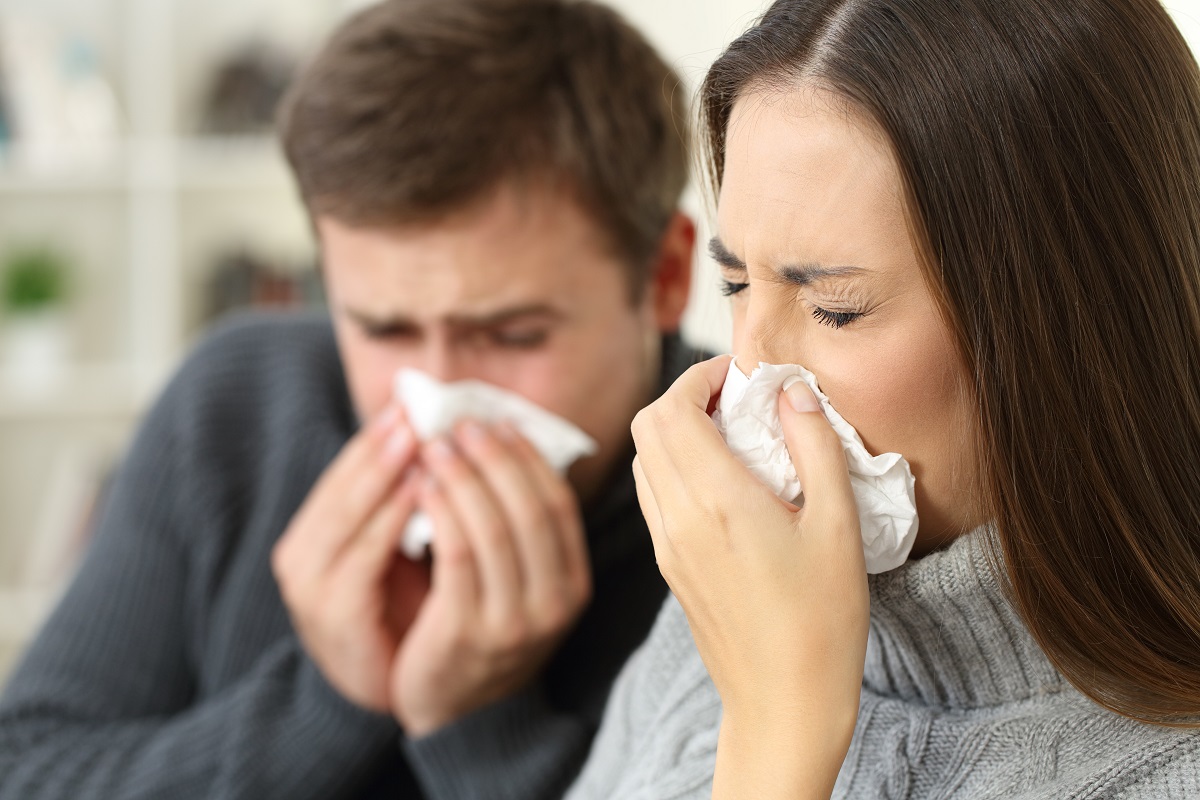Oh when the weather outside is frightful, those allergies aren’t so delightful.
You may think the allergy symptoms you’re experiencing are just another case of the common cold, but if they persist as the season passes, then odds are that you may be suffering from winter allergies.
Though many trees, grasses, flowers, and weeds stop producing pollen during the winter, it doesn’t lessen your risk of being exposed to indoor allergies caused by you spending more time indoors. According to the American Academy of Allergy Asthma & Immunology, millions of people have allergy symptoms year-round as a result of indoor allergens.
Today, our McAllen balloon sinuplasty specialists at the Glatz Group are glad to explain how winter can affect your allergies, as well as provide a few helpful tips on how to protect yourself! Don’t let this holiday season go by without giving yourself the gift of sinus relief.
Indoor Allergens: The Sources and the Symptoms
It is important to know the differences in symptoms between a cold and allergies.
A cold should typically last no more than several days to a week while the effects of allergies can last up to several weeks. Allergy symptoms include watery and itchy eyes, whereas a cold does not. Allergies can happen at any time throughout the year while colds are more likely to occur during spring or winter.
However, when it comes to indoor allergens, they are what can trigger your winter allergies. The most common sources are dust mites, mold, and even your very own pet.
How to Protect Yourself from Indoor Allergen Exposure
If you’re suffering from allergies this winter, consider these tips to protect yourself from these common indoor allergens:
1. Dust Mites - These microscopic creatures thrive in warm, damp environments like bedding, upholstered furniture, and carpeting. To best protect yourself and your family from these little but insufferable creatures:
-
- Cover your mattresses, box springs, and pillows with allergen-proof fabric covers or airtight plastic covers.
- Wash your bedding on a weekly basis in hot water (130 degrees) and dried within a hot dryer. Please be aware that there are allergen-proof covers made for comforters and pillows that CANNOT be washed on the regular.
- Keep your humidity low with a dehumidifier or air conditioning.
- Wall-to-wall carpeting should be removed as frequently as possible and make sure to wash or dry clean your throw rugs regularly.
- Use a damp mop if you are cleaning hardwood floors.
- Clean your house with a vacuum that has a HEPA filter if you can’t have someone else do the dusting and vacuuming.
2. Mold - Molds can easily gather up inside and outside your home if you live in a humid area. Molds love to grow in moist areas such as your kitchen and bathroom, whether you can see them or not. Wipe down wet surfaces to keep mold from thickening. With good insulation, the mold can be reduced from less condensation on cold surfaces. Make sure to also clean your garbage cans and fridge drawers regularly to prevent mold from growing in these places.
3. Pets - It’s important to remember that even as a pet lover, you’ll have to make some sacrifices to manage your allergies or those of a loved one in your home. When it comes to minimizing indoor allergens caused by your pet:
-
- Remember to change your clothes and wash your hands with soap and water after petting or playing with your pet.
- Minimize contact with your furry friend when you are dealing with allergy symptoms.
- Frequently vacuum your carpet.
- If possible, replace carpeted areas in your home with tile or hardwood floors.
- Wash your pet at least once a week to wash away dander and other allergens from their fur.
If you have pet allergies, you may want to speak with your primary physician to see if you are eligible for allergy immunotherapy shots.
Winter Allergy Treatment Methods
There are a plethora of different options in regards to allergy relief which are both short-term and long-term. Some short-term remedies include over-the-counter medications that will provide allergy relief for a couple of days. A few of the most popular medications include oral antihistamines, nasal sprays, and decongestants.
If any of these short-term options don’t work for your symptoms, you may want to consider a long-term treatment plan, like balloon sinuplasty.
Find out what treatment is right for your case by consulting with our McAllen otolaryngologist, Dr. Frank R. Glatz at the Glatz Group, to adequately recommend medication and/or services based on your needs.
Breathe Free This Winter with Balloon Sinuplasty
Balloon sinuplasty is a safe and efficient operation meant to slightly alter the affected sinus passageways and help them drain better without requiring any removal of bone or tissue. The procedure is generally done for those who suffer from severe cases of chronic sinusitis and is a relatively fast process that can be administered by our trusted ENT in our Glatz Group McAllen office.
In order to figure out if your symptoms qualify for a balloon sinuplasty, schedule a consultation with our McAllen sinus relief specialists of the Glatz Group today.
For all of your winter allergy relief needs, do NOT hesitate to call us right now at (956) 631-2957. You’ll be Glatz you did!



